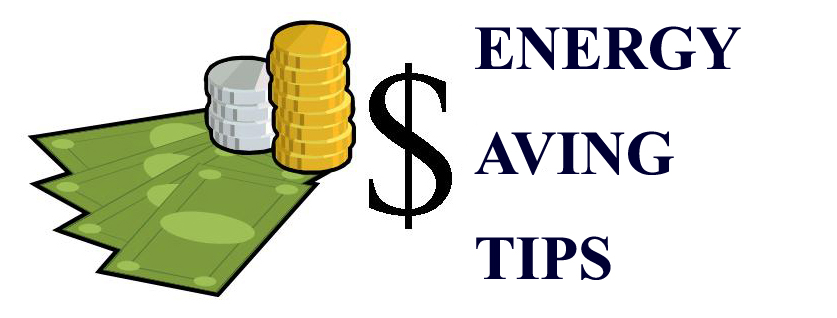The cost of cooling your house continues to rise. There are several ways you can save a significant amount of money on your energy bills. In fact, it’s possible to save up to 25 percent on your power bill by using the following tips. While your results might vary, you’re guaranteed to find at least a few ways to save money. The idea behind all our advice, and in fact our entire conservation effort, is to give you the information you need to make the right decisions.
These simple steps don’t cost a thing but can potentially save you 10-25% on your monthly energy bill.
- Turn off lights and appliances when not in use. Don’t forget your computer – it can use as much energy as a refrigerator. Most new computers have “sleep” settings.
- In the cold months, set the thermostat to 68 degrees when home, and then back to 58 degrees when sleeping or when you are not home more than four hours.
- In warm months, set the thermostat to 78-80 degrees when home and 5 to 10 degrees warmer at night or when you’re not home.
- Do not turn your air conditioning off in the hot months when you’re not home. Your house will store up the heat and you’re likely to make the air conditioning run for hours to feel comfortable.
- In the winter, open window coverings on the sunny side of your home to take advantage of “free heat from the sun” Close the coverings on cloudy days or right after the sun sets.
- In the cooling season, close blinds and drapes during the day to keep heat out.
- Also, use your dishwasher, clothes washer and dryer, and cook as late in the evening as possible.
- Barbecue outside if practical, keeping in mind the heat and effect of sun on your body. By reducing the heat coming into your home from any source, will reduce the load on your air conditioning.
- Use pool trippers to reduce the time your swimming pool pump runs on—eight to twelve hours a day is plenty in the summer months, less in the winter months.
- Set your water heater to 120 degrees.
- Vacuum your refrigerator coils (underneath and in the back) and don’t obstruct the coils. They need air space to work.
- Keep the seals (gaskets) on refrigerators and freezers clean.
- Keep your freezer as full as possible. You can place containers or plastic bottles filled with water in the empty spaces.
- Make sure food is cool and covered before it goes into the refrigerator.
- Close doors to rooms that are not being used.
- Run full loads in your washer and dryer, and use “solar drying” (clotheslines).
- Use energy saver option on your dishwasher, allowing dishes to air dry.
- If you A/C unit is on the ground, keep the area around it clean and free of obstructions to maintain air flow.
- Unplug your televisions/VCR when you’re on vacation. Most new sets draw power even when they’re turned off.
- Keep lights and lighting fixtures clean, especially if you’re reducing the number of lights you use. Dirt absorbs light. Let lights cool before cleaning them and never touch halogen bulbs with your bare hands. The oil from your skin can greatly damage the bulbs. Use a small piece of paper to hold the bulb.
- If your dishwasher has a filter clean it.
- Clean the reflectors underneath the burners on stovetops.
There are plenty of low cost, easy to do projects or steps you can do to save another 10-25% on your energy bill.
- Use compact fluorescent bulbs instead of incandescent ones. This will typically save $1 per bulb changed out (for bulbs running 4-6 hours per day) and reduce heat in your home. Regular bulbs use most of the electricity to generate heat so use care when changing bulbs.
- Caulk windows and caulk and weather-strip doors. Keep the outside air out and the inside air in.
- Install a hot water heater blanket but be careful not to cover vents or temperature settings.
- Install hot water pipe insulation. Do keep the insulation at least six inches away from the flue (exhaust pipe) of gas water heaters.
- Plant trees and shrubs on the south and west side of your residence. The vegetation acts as insulation and provides shading, reducing thermal gain in a building.
- Fix leaky faucets Install low flow showerheads.
- Use room fans to keep the air moving and reduce the feeling of heat in your home.
- Replace furnace and air conditioner filters. Spray the filters with a light coating of lemon furniture polish or vegetable oil cooking spray to help trap dirt in the filter.
- Check the seals on your refrigerator and freezer.
- Replace normal thermostats with programmable thermostats.



